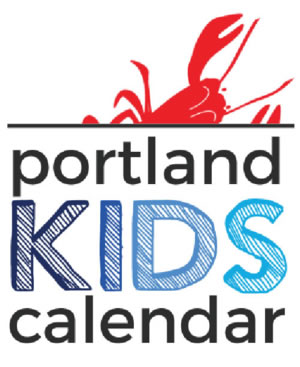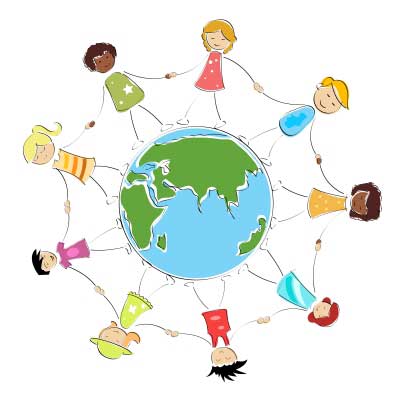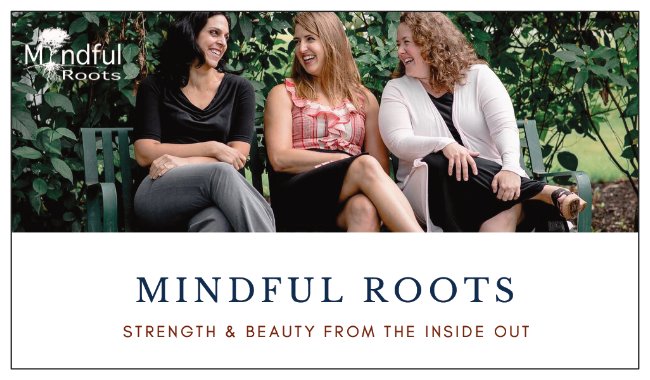The world is so vast and glorious and colorful it’s no wonder kids are drawn to its enchanting diversity. Children’s curiosity naturally leads their charge, but we as parents can help to frame their experiences to build a greater understanding.
But how do you build a meaningful and authentic appreciation of our planet’s cultural differences? How do you equip your children with the tools they will need to navigate these cultural diversities at home or abroad? Perhaps it is the same way we teach everything else: patience, love, meaningful connection, candid conversation, curiosity, and FUN!
Learn What You Love
I remember a few years ago, I was convinced that I needed to start my kids in a Mandarin Chinese class. This would propel them into the future! I had read several articles suggesting that learning Mandarin Chinese would enhance their minds and build a strong global perspective. I was sold. Hook, line and sinker!
I explored several options and classes until I sadly realized that, however well intentioned my obsession was, I would most likely fail my kids because I was incapable of providing adequate support. Knowing basically nothing about Chinese culture or language, I too would have to start learning from square one – an ambitious goal that would probably start triumphantly (!) but fade quickly due to time limitations, patience, etc. While there are loads of parents capable of this kind of challenge, (and many succeed!) I know my personal limits and am sadly not one of those parents. Perhaps French is more my speed… I like French.
Julie Reece, co-founder of the local One World Language School, says that parents who have a connection or love for a specific culture themselves have an easier time building that connection for their kids. Specifically with learning a language, Julie says children who share a bond with a culture, whether through a friend, family member or a teacher they love, “make a stronger connection to learning the language.” The process then has personal meaning and excitement. She added that this personal connection is not essential for everyone, but if you are having difficulty finding your starting point, go with what you know and love. One-World Language does offer a wide array of local language courses ranging from French to German to even Mandarin Chinese. (see contact info below)
Take your time
The great thing about celebrating our world’s cultures at home is that the adventure grows with your kids. There is no rush and, no matter what age your kids are, there are always new aspects to explore, new conversations to have, and new observations to share. Remember Rome wasn’t built in a day. Carve out a chunk of time, whether it’s weeks or months or years to immerse your family in one culture.
Use a hands-on approach and cook food with friends, make crafts, enjoy music, reach out to people with a connection to the country. Try to learn the language. But do all of this over a longer stretch of time where you can discover a deeper appreciation and perhaps follow this culture’s traditions, holidays and current events, in real time.
Make Personal Connections
I have a friend who lived with her family in Ireland for years and I love hearing her stories from her days in County Mayo. She described, with hilarity, her many adventures in expat living – including her legless Thanksgiving turkey from the local butcher.
Her stories are captivating and offer an inside peek into the cultural differences we share and value. Perhaps you know someone who is either from another country or has spent time there. Ask them over to share their stories with your family.
Whether you already know someone or not, there are many other opportunities to make a personal connection. Blayne Matty, regional director for Cultural Homestays International, suggests hosting a foreign exchange student. Blayne not only works to place international students with host families but she and her family also hosted a student. When asked how personal connections create an authentic approach to understanding cultural diversity, she offered this heartfelt testimony:
“I try to stress to my kids that, ‘in our family, we…’ (don’t eat meat, grow our own food, share, don’t use violence, etc.) and allow them to understand that not all families are approaching the world in the same way. Hosting an exchange student in many ways reinforced that for my children, beyond the basic differences of someone from another country. Certainly he spoke a different language, had a different religion, and dressed a little differently, but he also came from a family who approached conflict differently, valued different things.”
Get Out of Town!
If we could all travel to the countries and cultures we hope to share with our kids, immersion would be a little more straightforward. But for many of us, international travel as a family isn’t an option.
Thankfully, there are plenty of local destinations, events, and opportunities that can help immerse them in a new culture. Whether you visit Boston’s Chinatown, learn Ethiopian dance at Kittery’s Dance Hall, or experience the new exhibit at the Children’s Museum of NH, Mosaic-Exploring Our Multicultural Neighborhood (March 8-May 27, exhibit is free), we are fortunate to have plenty of local opportunities. Dive in and explore! (see links below on how you can connect)
Mail Time!
Did you ever have a pen-pal as a kid? My first pen-pal was Joanna from California. I remember thinking that California was worlds away – a land where everyone looked like my Barbie dolls and drove pink corvettes. Thankfully, through our connection, I learned that we were pretty similar kids and California wasn’t that different. Pen-pals are a great way to break down stereotypes, connect kids on their terms and celebrate how similar and different we all are. (See resource below for more information)
When In Rome (or pretending to be!)…
From eating on the floor, to loudly slurping soup, kids will have a blast using the table manners and customs of different cultures. See if you can challenge your kids to eat their meal only using their right hand (left is considered unclean in Muslim cultures), or give a small belch (this shouldn’t be difficult!) after their meal as a sign of gratitude (China).
Julie Reece agrees that using cultural etiquette and table manners is a great, hands-on approach to understanding small cultural differences. Julie adds, “If kids learn these tools now, when they are older they will feel comfortable on that business trip in India. If you get the skills to navigate the differences as a child, you won’t be afraid as an adult.”
Party!
A celebration is a perfect way to offer an authentic approach to your culture-of-choice. Whether you celebrate India’s Diwali Festival in the fall, or New Zealand’s Matariki (Maori New Year) in the spring your kids will love sharing and celebrating with friends and family. From kid friendly food, music, dress, festival specific activities and games, a party connects so many dots in cultural education.
Learning the history of a celebration will unlock pieces to a deeper appreciation of the culture. Folklore, political strife, and religious beliefs are integral pieces to many celebrations and key components to understanding our world.
Have fun celebrating our planet’s diversity and sharing YOUR curiosity with your kids! Remember kids learn by watching and imitating our actions.
Helpful Links:
General:
- Great general resource: http://kidworldcitizen.org/
- Kids Web Japan: http://web-japan.org/kidsweb/explore/housing/index.html
- List of sites for China: http://webtech.kennesaw.edu/jcheek3/china.htm http://www.activityvillage.co.uk/china_for_kids.htm
- Great resource for info on India: http://www.activityvillage.co.uk/india_for_kids.htm
- Info on several countries: http://www.kids-world-travel-guide.com/
Language:
- One-World Language School: http://www.oneworldlanguageschool.org/ Contact: Julie Reece at julie.reece@oneworldlanguageschool.orgor call 603-866-0364
Games & Crafts:
- African games & crafts: http://www.ehow.com/list_6388877_african-games-crafts-kids.html
- Germany: http://www.ehow.com/list_5784701_german-children-games.html http://www.ehow.co.uk/list_6189418_german-crafts-kids.html
- China: http://www.activityvillage.co.uk/traditional_chinese_games.htm http://www.activityvillage.co.uk/china_crafts.htm
Hosting an Exchange Student:
- Cultural Homestays International: http://www.chinet.org/ Contact: Blayne Matty at culturalhomestay@hotmail.com or 207-752-2070
Pen-Pals:
- How to safely find international pen-pals: http://kidworldcitizen.org/2011/11/11/pen-pal-programs/
Get Out of Town!
- Boston’s Chinatown: http://www.boston.com/travel/boston/neighborhoods/chinatown/
- Chinese & American Association of Maine: http://cafammaine.org/
- Boston’s French Cultural Center: Events, classes http://www.frenchculturalcenter.org/
- Japan – America Society of Maine http://www.maine-japan.org/ (site is being updated)
- United India Association of New England: (be careful of loud music when you enter page!) http://www.unitedindia.net/
- Several organizations promoting African culture in Maine: http://globalportlandmaine.com/international-community-groups/african/
- Kittery’s Dance Hall: cultural events http://www.thedancehallkittery.org/The_Dance_Hall/The_Dance_Hall.html
- Children’s Museum of NH (Mosaic – Exploring Our Multicultural Neighborhood): www.childrens-museum.org/
- Peabody Essex Museum: www.pem.org
- Your local libraries: from cultural events (including Irish Music for St. Patty’s!) to museum passes your local library is a wealth of cultural knowledge.
- Check event listings for UNH, Phillips Exeter Academy, and your local schools for cultural events.
Festivals:
- 2013 Calendar of Celebrations: http://kidworldcitizen.org/2013-diversity-calendar/
- India’s Diwali: http://www.mindfulmum.co.uk/fun/2011/diwali-for-kids/
- New Zealand’s Matariki: http://www.kiwifamilies.co.nz/articles/matariki-maori-new-year/
- German Fasching: http://german.about.com/od/culture/tp/Fasching-In-Germany.htm
- Chinese New Year: http://www.activityvillage.co.uk/chinese_new_year.htm
- Mexico’s Day of the Dead: http://spanglishbaby.com/finds/kid-friendly-day-of-the-dead-activities-crafts/
Julie Sudderth lives in Kittery, Maine with her husband, two kids and their little dog named Django. When she’s not writing or driving her kids around town, she enjoys concocting family adventures and spending time at the beach. You can follow her family’s escapades at www.raisingcuriosity.com.






Thanks for including our Multicultural calendar and the international pen-pal post:). I love your other resources and will be sharing with my readers!! I especially love all of the different cultural web sites you have shared- thank you so much!!! Go global!:)